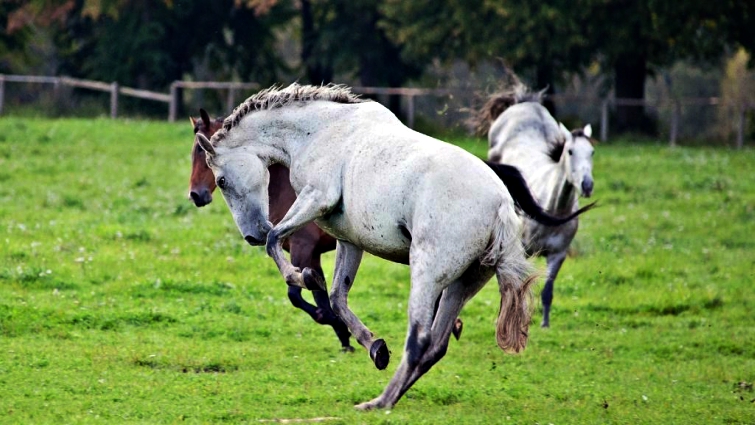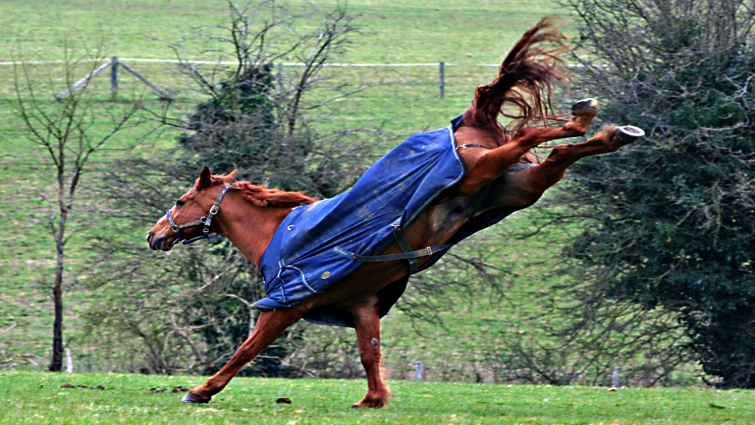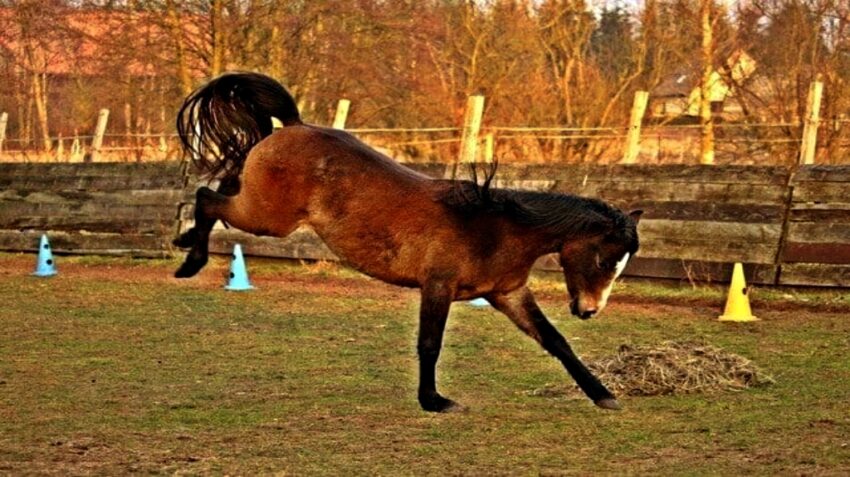Horses may kick for specific reasons, and a strong kick is enough to send even the most experienced riders to the hospital. Equestrians have the tendency to take pride in surviving a kick, but there’s also a sense of fulfillment in knowing how to avoid them. Horses kick when they’re frustrated, frightened, and some even do it for no particular motive. You can’t always stop it from happening, but you can do your best to avoid them. Here are five suggestions who show you how to avoid getting kicked.


1 – Let them eat alone
Horses get very excited when it comes to food and that excitement often turns into aggression. If they’re fed close to other horses, you most likely will run the risk of getting stuck as they fight for a spot at the table.


2 – Understand your horse’s body language
Kicks always happen for a reason, and in many cases, it’s your horse’s last attempt at getting their point across. She can’t speak her concerns, but that doesn’t mean your horse isn’t giving you warnings. Body language is the only language you and your horse share, and you need to be fluent. If you start noticing these signs, stop what you’re doing and get out of the way.


3 – Work on desensitizing your horse
Desensitizing means getting your horse accustomed to being handled by you. They should know from experience that whatever you do, you’re not going to hurt them. Kicks often stem from anxiety at having their hooves, legs, and bellies handled. You can put your horse at ease by continuously working to make her feel comfortable in your care.


4 – Be careful around groups
Horses kick each other to show frustration, stress, and dominance, and their riders are often caught in the middle of these states. Never walk between tied horses and stay aware of your surroundings when walking among free horses.


